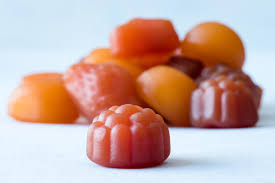“A well-balanced, low tooth decay risk, and nutrient-dense diets for infants, children, adolescents, and persons with special health care needs are mandatory.”
The causes of tooth decay and obesity are multifactorial, with both having significant dietary components.
One of the things associated with tooth decay and obesity in children is the consumption of large quantities of sugar-sweetened foods and beverages. Sugar-sweetened beverages are defined by the Centers for Disease Control and Prevention to include soft drinks, fruit drinks, sports drinks, tea and coffee drinks, energy drinks, sweetened milk or milk alternatives, and any other beverages to which sugar, generally high-fructose corn syrup or sucrose (table sugar), has been added.
You may also like: Paediatric Dentist On Home Remedies For Teething

Image source: http://naturalsociety.com
Sugar-containing beverages also include sugar-sweetened beverages as well as beverages in which sugar, generally glucose or fructose is naturally present, such as 100 % fruit juice. 100 % juice and juice drinks actually have no essential role in a child’s diet and contribute to excessive calorie intake and risk of tooth decay in children.
Their recommendations include:
- Juice should not be introduced to infants before one year of age;
- Intake of juice should be limited to
- 4 ounces a day for children ages 1–3 years of age
- 4 – 6 ounces for children 4–6 years of age
- 8 ounces for children 7–18 years of age
- Toddlers should not be given juice in containers that foster easy consumption
- Toddlers should not be given juice at bedtime.
You may also like: These Are The Answers To All The Queries You Have About Your Child's Teeth!
Frequent ingestion of sugar-sweetened medications is associated with dental caries in chronically ill children.

To motivate children to consume vitamins, numerous companies have made sugar containing jelly, gummy, and candy-like chewable vitamin supplements, and cases of vitamin A toxicity have been reported as a result of excessive consumption of candy-like vitamin supplements. The optimal way to obtain adequate amounts of vitamins is to consume a healthy and well-balanced diet.
The causes of tooth decay involve a combination of factors and include diet, bacteria capable of fermenting carbohydrates, fluoride exposure, and a susceptible host. While sugar, especially high-frequency consumption, is a factor contributing to tooth decay, a systematic study of sugar consumption and caries risk (tooth decay risk) concluded that the relationship between sugar consumption and tooth decay is weaker after the introduction of fluoride exposure.
The causes of obesity include genetic components, lifestyle, and environmental variables, as well as nutritional factors.
Children and adolescents who are obese are likely to be obese as adults and, in adulthood, at risk for health problems such as heart disease, type 2 diabetes, stroke, several types of cancer, and osteoarthritis. Due to the high prevalence of dental caries and childhood obesity, the need remains for research, education, and professional engagement to further advance healthy dietary practices for infants, children, and adolescents.
You may also like: Is Your Child A Mouth Breather? Why You Should Stop The Habit Now!

Also, children exposed to breastfeeding up to age 12 months had a long duration of reduced risk of caries. However, children breastfed more than 12 months have an increased risk of caries and those children breastfed nocturnally or more frequently had a further increased caries risk.
So to conclude, establishing a dental routine by the age of 12 months allows the institution of individualized caries-preventive strategies, including dietary recommendations and appropriate oral hygiene instruction, as the milk teeth begin to erupt.
Also, children exposed to breastfeeding up to age 12 months had a long duration of reduced risk of caries. However, children breastfed more than 12 months has an increased risk of caries; and those children breastfed nocturnally or more frequently had a further increased caries risk.
Image Source: http://www.slate.com




















